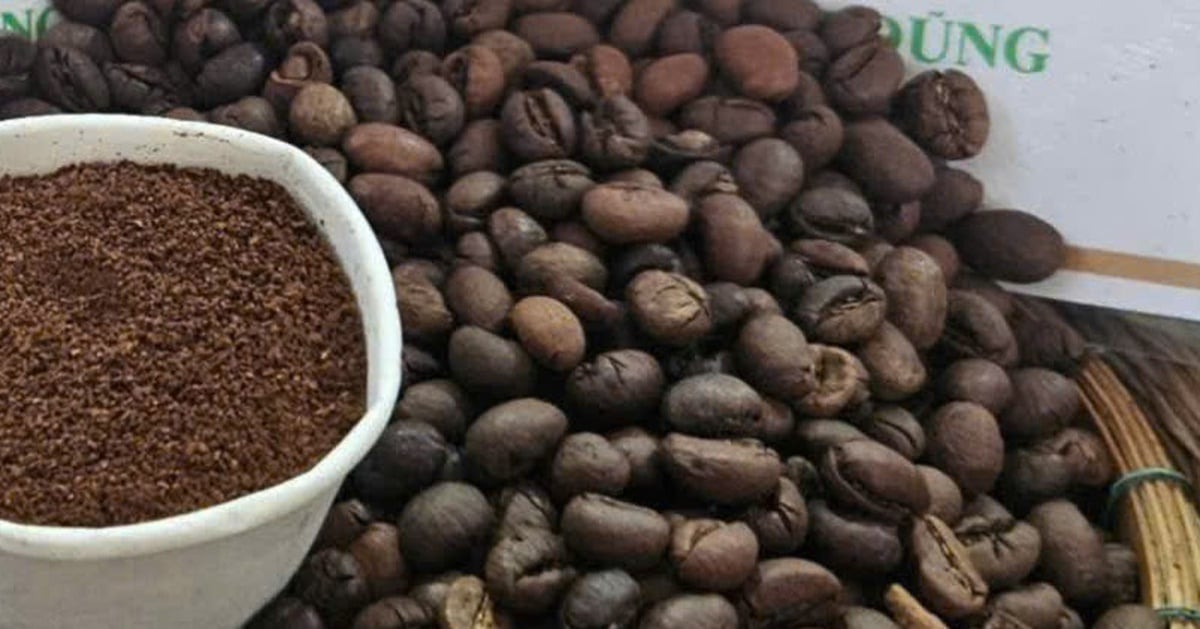A study found that a diet rich in polyphenol-rich foods like grapes, strawberries, acai berries, oranges, chocolate, wine, and coffee can reduce the risk of metabolic syndrome by up to 23%, according to SciTechDaily.

According to research, chocolate can help reduce the risk of developing metabolic syndrome by up to 23% - Illustration by AI
A large-scale study on the effects of dietary polyphenol consumption followed more than 6,000 Brazilians for eight years.
The findings, published in the Journal of Nutrition , highlight the protective effects of polyphenols on cardiometabolic disorders.
Diet to reduce the risk of metabolic syndrome
Metabolic syndrome is a cluster of metabolic disorders and hormonal imbalances that significantly increase the risk of cardiovascular disease. Polyphenols, known for their antioxidant and anti-inflammatory properties, may help reduce these risks. This is good news for those who enjoy eating fruit, chocolate, drinking coffee and wine – all of which are rich in polyphenols.
Although the link between polyphenol consumption and reduced risk of metabolic syndrome has been identified in previous studies, no study has ever confirmed this in a large sample of 6,378 people and over a long period of up to 8 years.
"Our findings suggest that promoting a polyphenol-rich diet is a useful strategy to reduce the risk of cardiometabolic diseases and prevent metabolic syndrome," said Isabela Benseñor, co-author of the paper and professor at the School of Medicine, University of São Paulo (FM-USP), Brazil.
Of the 6,378 participants analyzed, 2,031 developed metabolic syndrome, which is diagnosed when three or more of five risk factors are present: abdominal obesity, high blood pressure, high blood sugar, high triglycerides, and abnormal blood lipids.
The prevalence of metabolic syndrome is increasing globally at an alarming rate. In Brazil, the rate increased from 29.6% in 2013 to 33% in 2022, according to previous studies.
“We plan to continue investigating the role of polyphenols in protecting against cardiometabolic disease. What we know so far relates to the anti-inflammatory and antioxidant properties of these compounds, as well as their ability to positively influence the gut microbiota,” said Benseñor.
Polyphenols should be supplemented from a varied diet .
More than 8,000 polyphenols have been identified in nature. The most common and well-studied groups include phenolic acids (found in coffee and wine), flavonoids (found in fruits, beans and chocolate), lignans (found in seeds and oranges), and stilbenes (found in red grapes and red wine).
The main conclusion of the study was that consuming polyphenols from various food sources at the highest level (469 mg per day) reduced the risk of developing metabolic syndrome by 23%, compared with the lowest level of consumption (177 mg per day).
Consuming phenolic acids (a group of polyphenols found in coffee, red wine, and tea) also reduced risk by a similar amount. The more diverse the sources of polyphenols in food, the greater the effect on gut microbiota and overall health.
The analysis also found that high consumption of flavan-3-ols (a subgroup of flavonoids) was associated with a 20% lower risk of metabolic syndrome. Red wine was the main source of flavan-3-ols in the study sample, accounting for 80% of total consumption of the compound. Chocolate was also an important source, accounting for 10%.
The results showed that the effects of polyphenols on metabolism and cardiovascular disease were significant. Regardless of cardiometabolic risk factors such as gender, age, smoking, or physical activity level, people who consumed more polyphenols had up to a 30-fold lower risk of high blood pressure or insulin resistance and a 17-fold lower risk of high triglycerides.
Source: https://tuoitre.vn/so-co-la-ca-phe-giup-giam-nguy-co-mac-hoi-chung-chuyen-hoa-20250227160905599.htm





![[Photo] General Secretary To Lam attends the 80th Anniversary of the Cultural Sector's Traditional Day](https://vstatic.vietnam.vn/vietnam/resource/IMAGE/2025/8/23/7a88e6b58502490aa153adf8f0eec2b2)






























































































Comment (0)